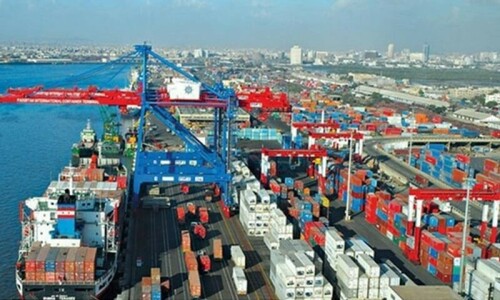It has come as a bolt from the blue, but if executed with care and by taking all communities along, it could alleviate the suffering and uncertainty of many.
In his maiden visit to Karachi on Sunday, Prime Minister Imran Khan unexpectedly unannounced that Afghans and Bengalis living in the country for many decades would be issued CNICs and passports, which would effectively make them formal citizens of Pakistan.
At this stage, it is unclear which categories of those residents will be considered for citizenship. Mr Khan mentioned both individuals who are living in Pakistan for more than four decades (presumably the first wave of Afghan refugees and Bengalis who remained in Pakistan after the separation of its eastern wing) and those who have been born and raised in Pakistan.
Much will depend on the details of the citizenship schemes, but it is clearly welcome that a prime minister has turned his attention to the plight of marginalised and forgotten communities. As Mr Khan noted, the failure of Pakistan to provide effective rights to Afghan and Bengali communities with a long-term presence in the country often results in pushing individuals towards desperation and crime. All those who dwell in this country should have a life of respect and dignity.
Nevertheless, it is important that the PTI government not act unilaterally in the matter. Parliament should be consulted, as should the provinces and the communities in which the Afghans and Bengalis reside. While humanity and the state’s moral responsibilities demand that the lives of non-citizens living in Pakistan for decades or born and raised here be improved, there are significant electoral and political dimensions to the issue that will also need to be considered.
For example, the granting of voting rights to large new groups in Karachi or Quetta could significantly alter the electoral dynamics of the provincial capitals and introduce shifts at the provincial level. Moreover, there could be concerns about ineligible individuals, such as those who have recently arrived in Pakistan, attempting to benefit from a citizenship drive.
None of these issues are insurmountable or should stand in the way of giving long-term residents of this country their due rights. But it is important at the outset to recognise potential challenges to the scheme lest the government’s good intentions quickly be overwhelmed by both legitimate and cynical political opposition.
Mr Khan’s idea to grant citizenship to long-term ‘refugees’ is significant and has the potential to positively transform the lives of many residents of this country. Yet, unilateralism at this stage by the federal government could sharpen political opposition to the PTI and mire a good idea in deep controversy.
Parliament, the provinces and local communities should all be consulted and their input taken seriously. All sides should remember that the current state of affairs is dismal and unacceptable.
Published in Dawn, September 18th, 2018














































